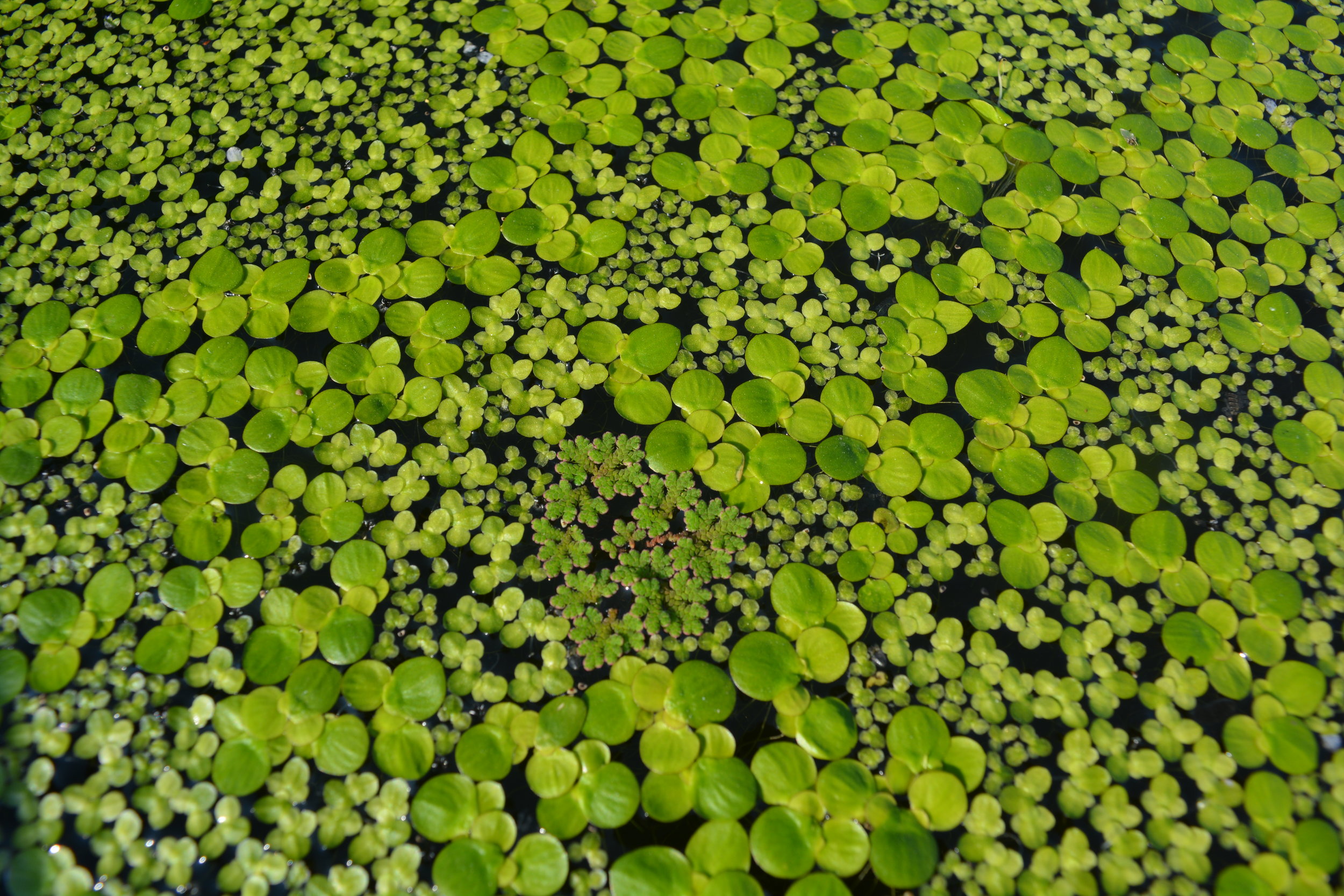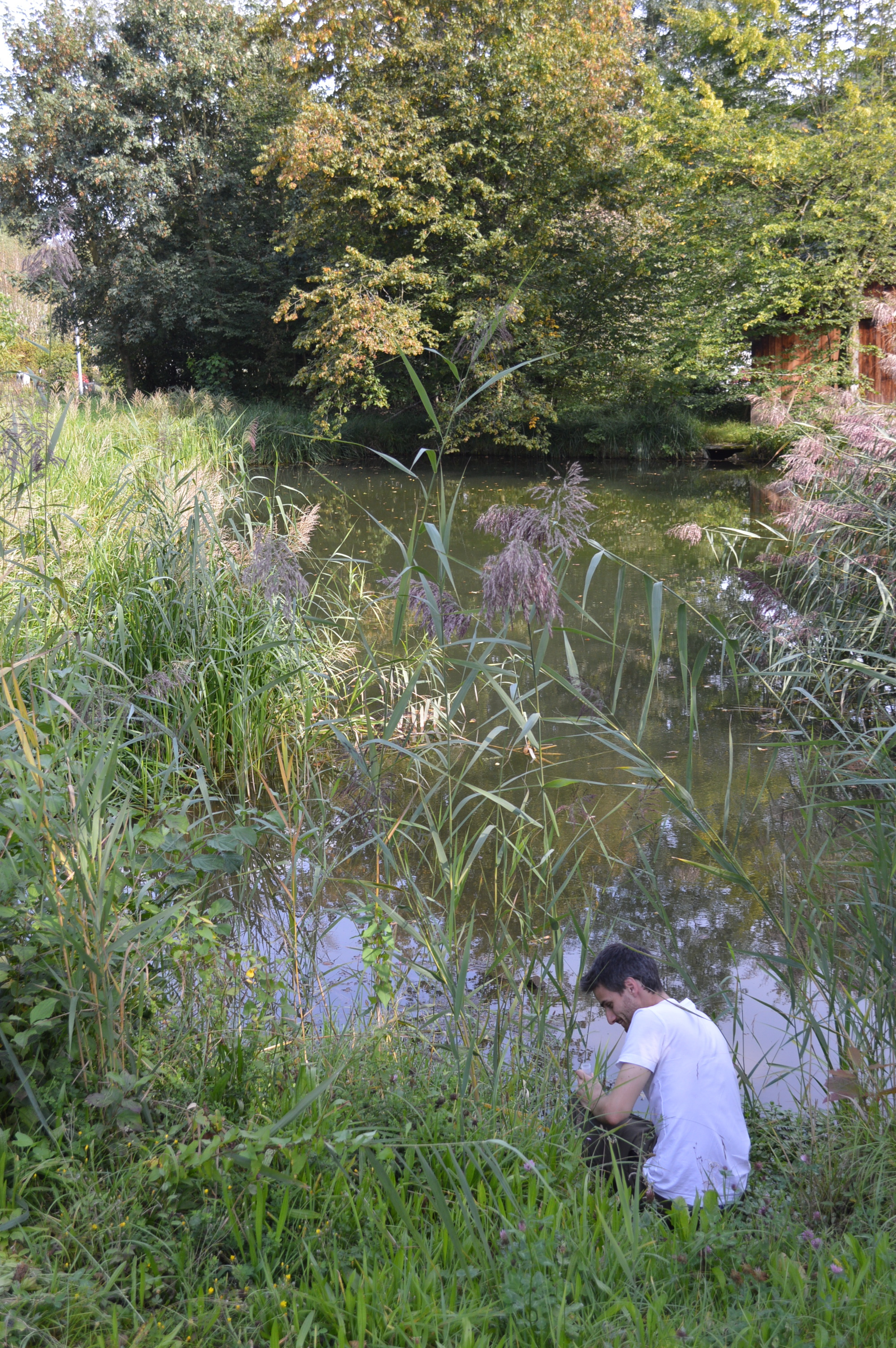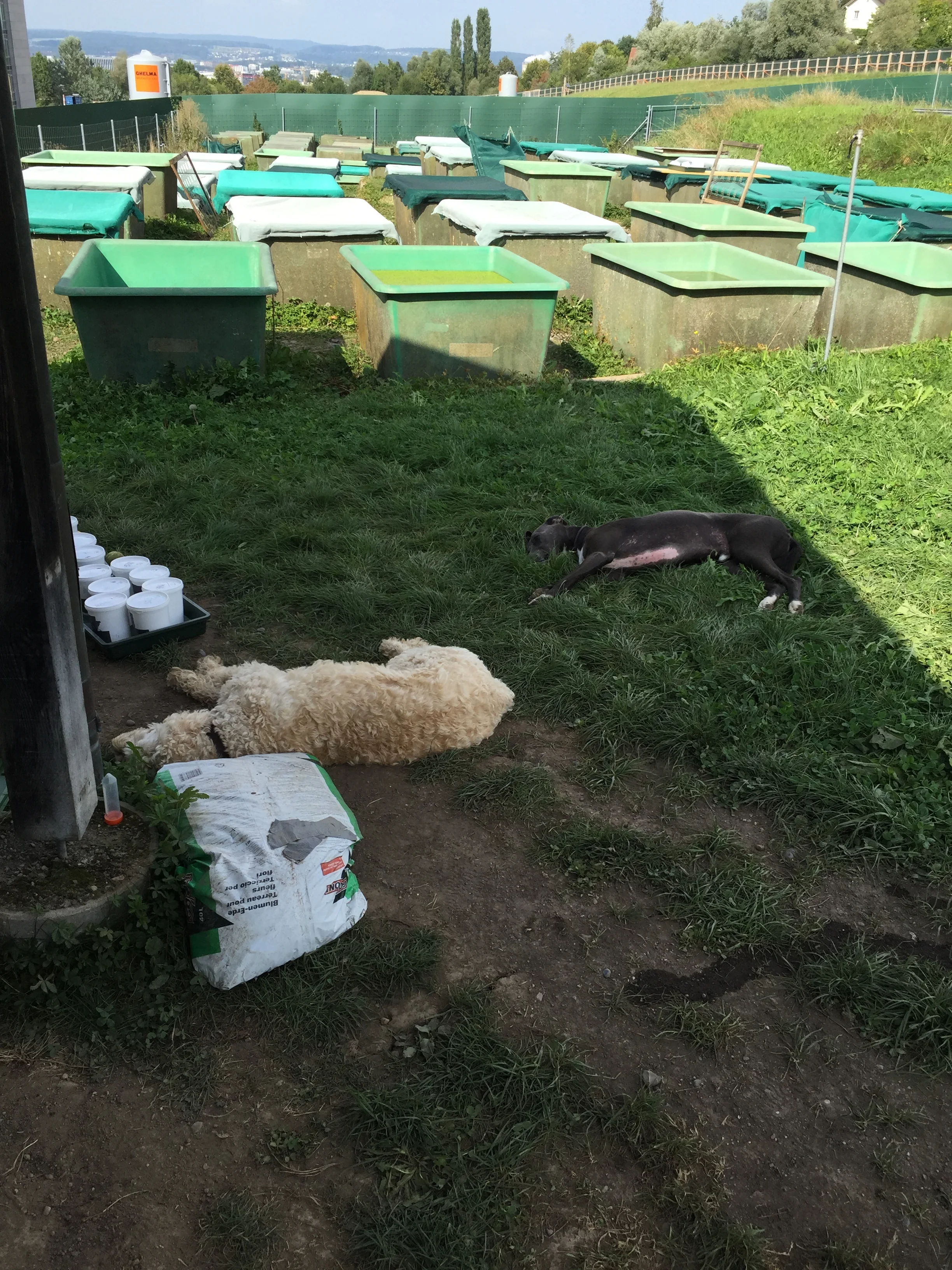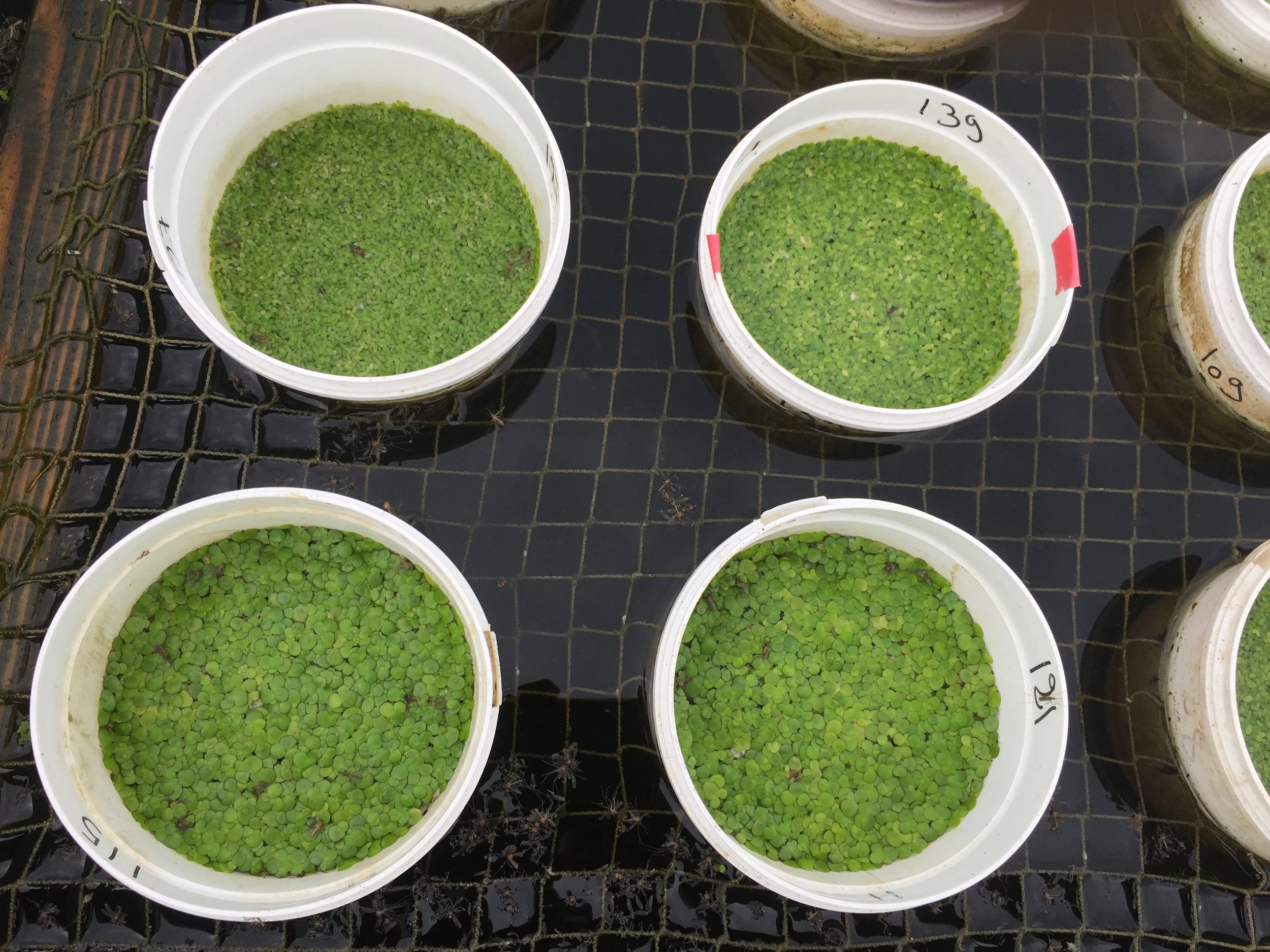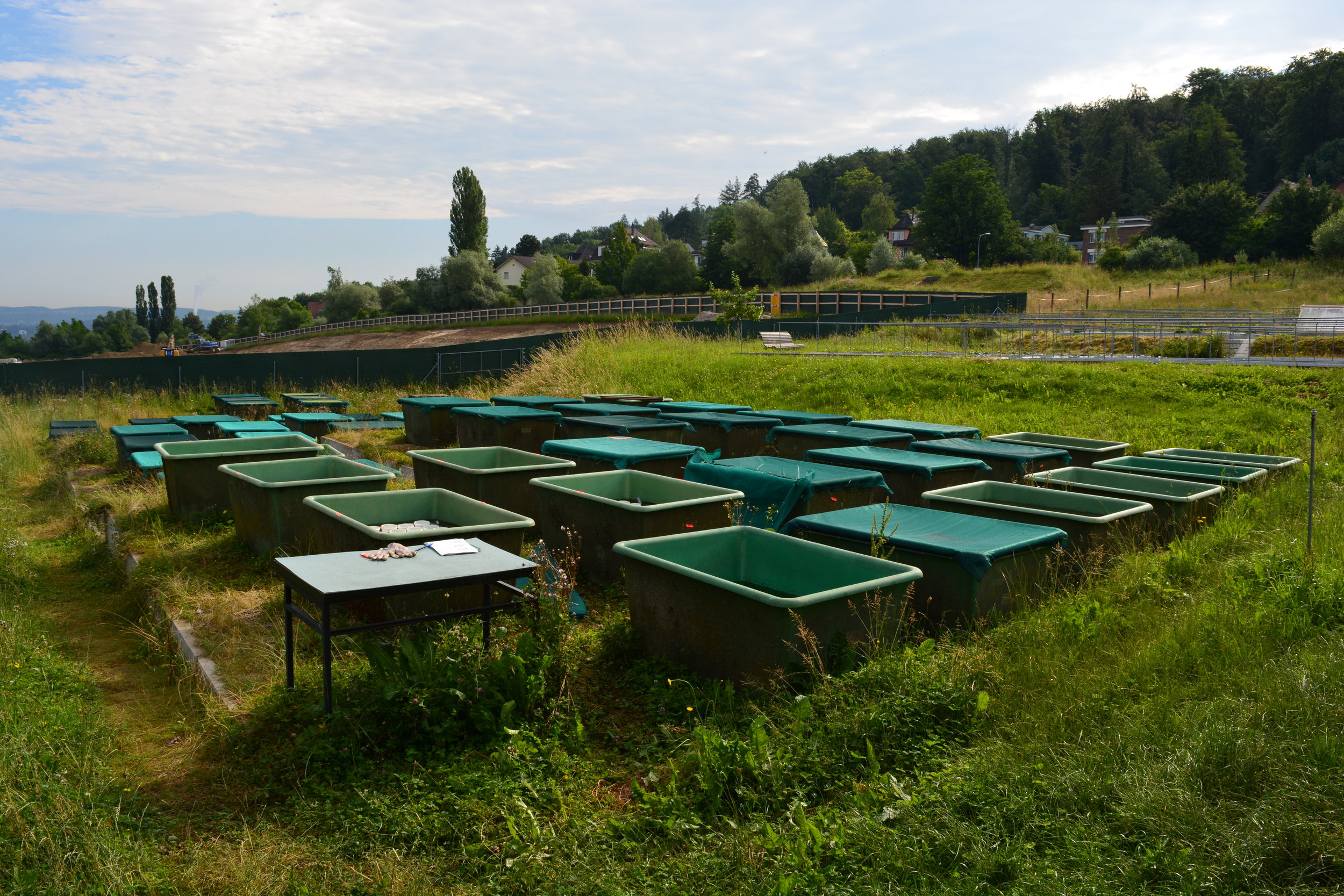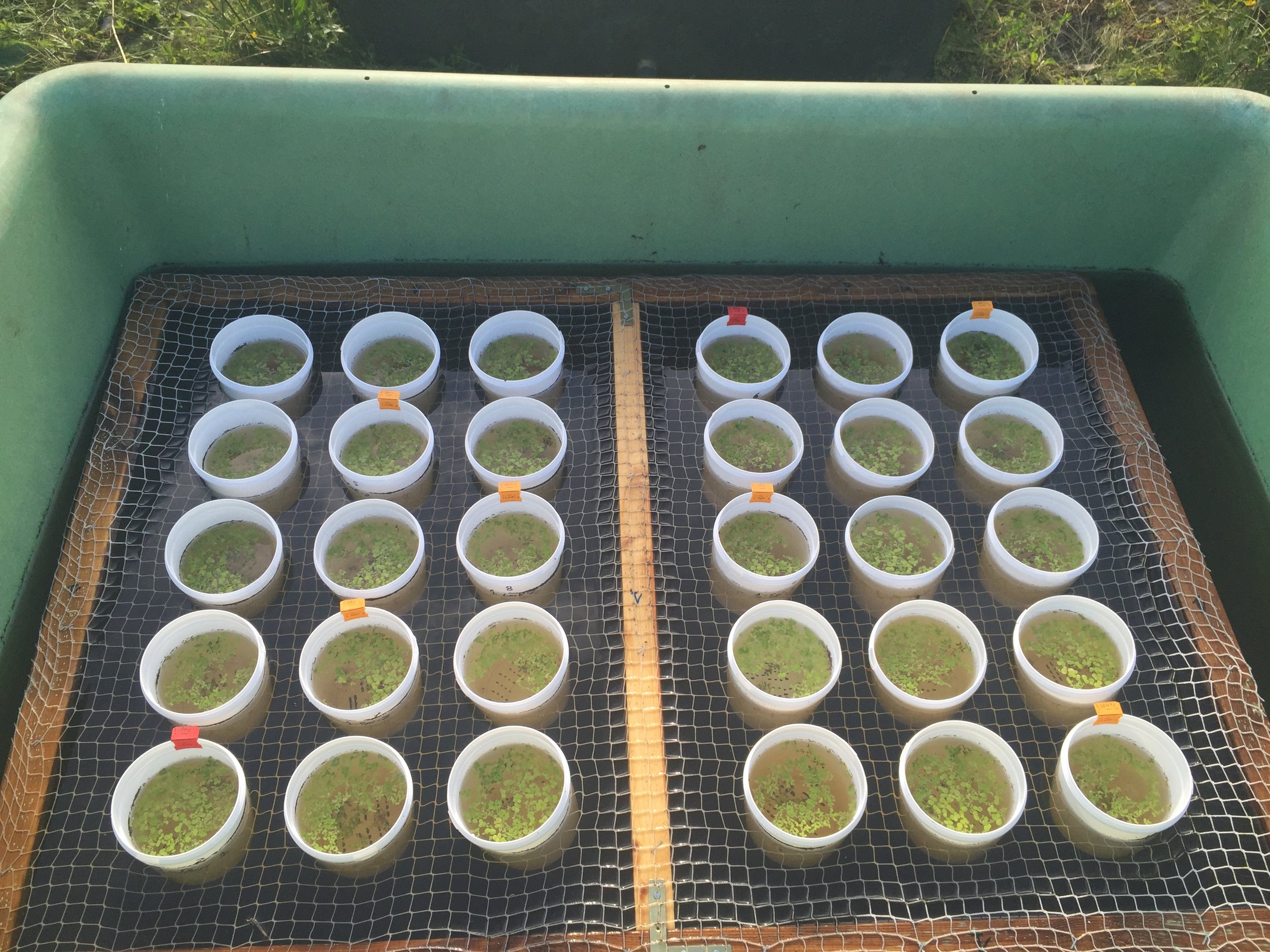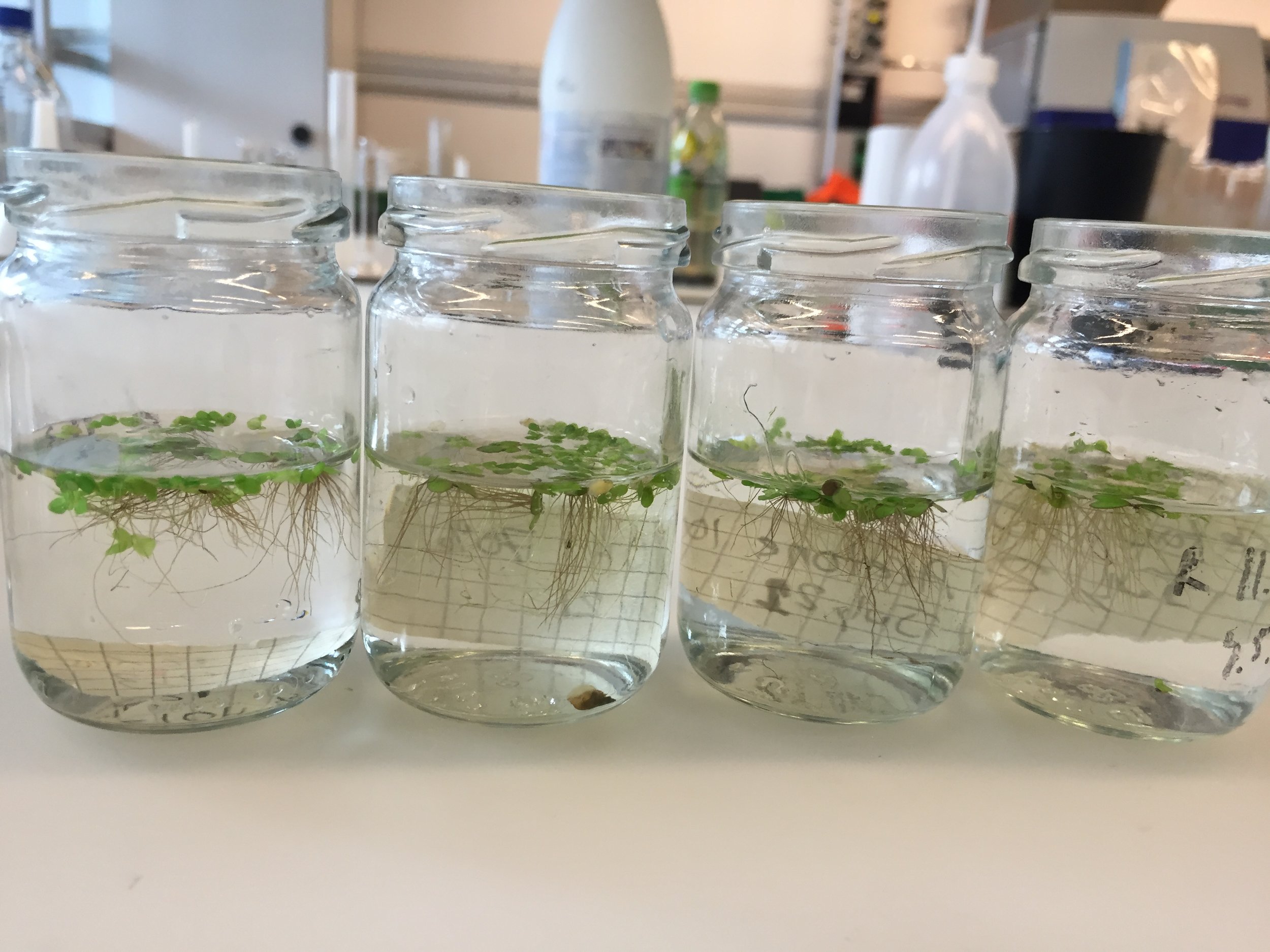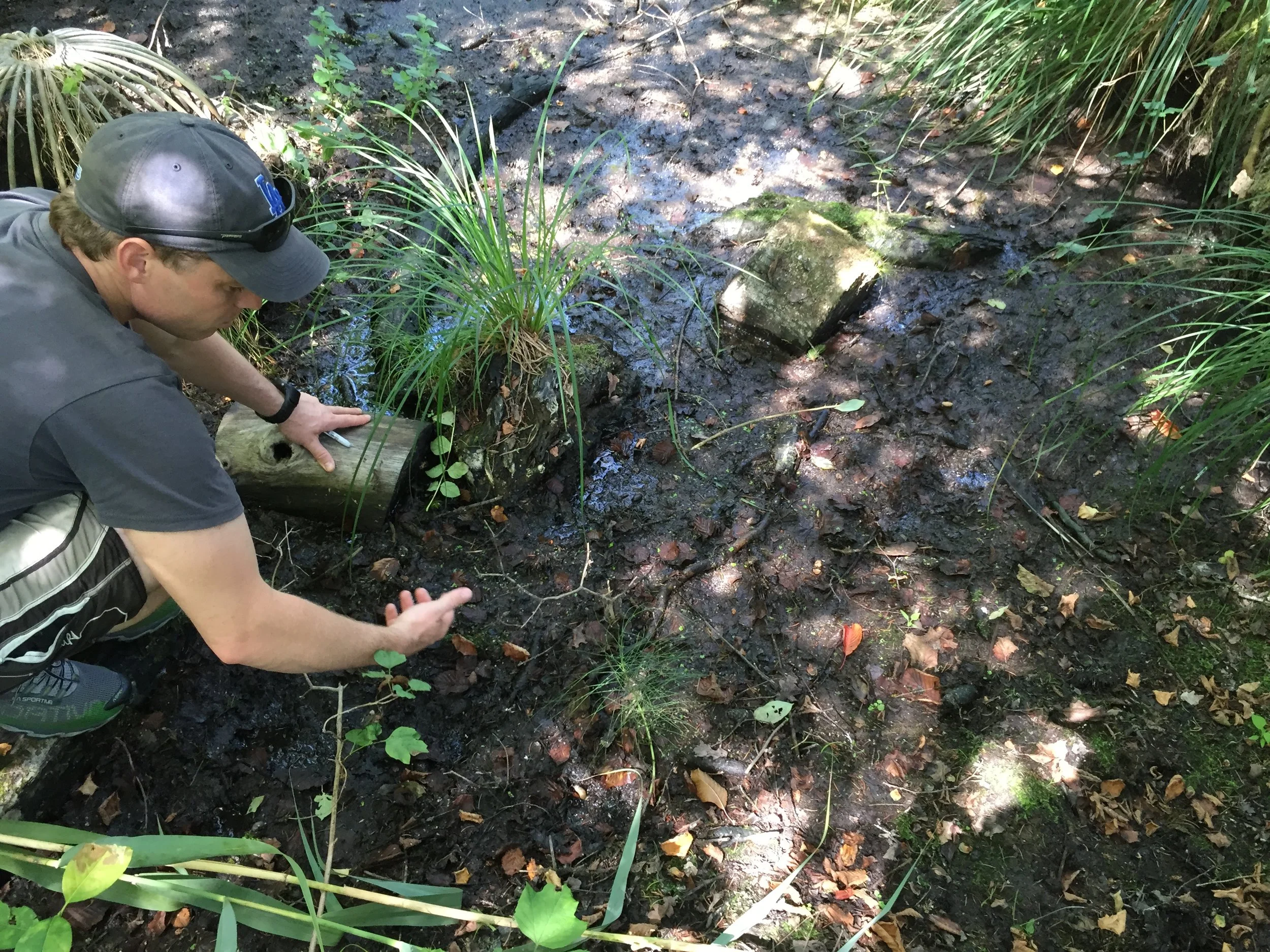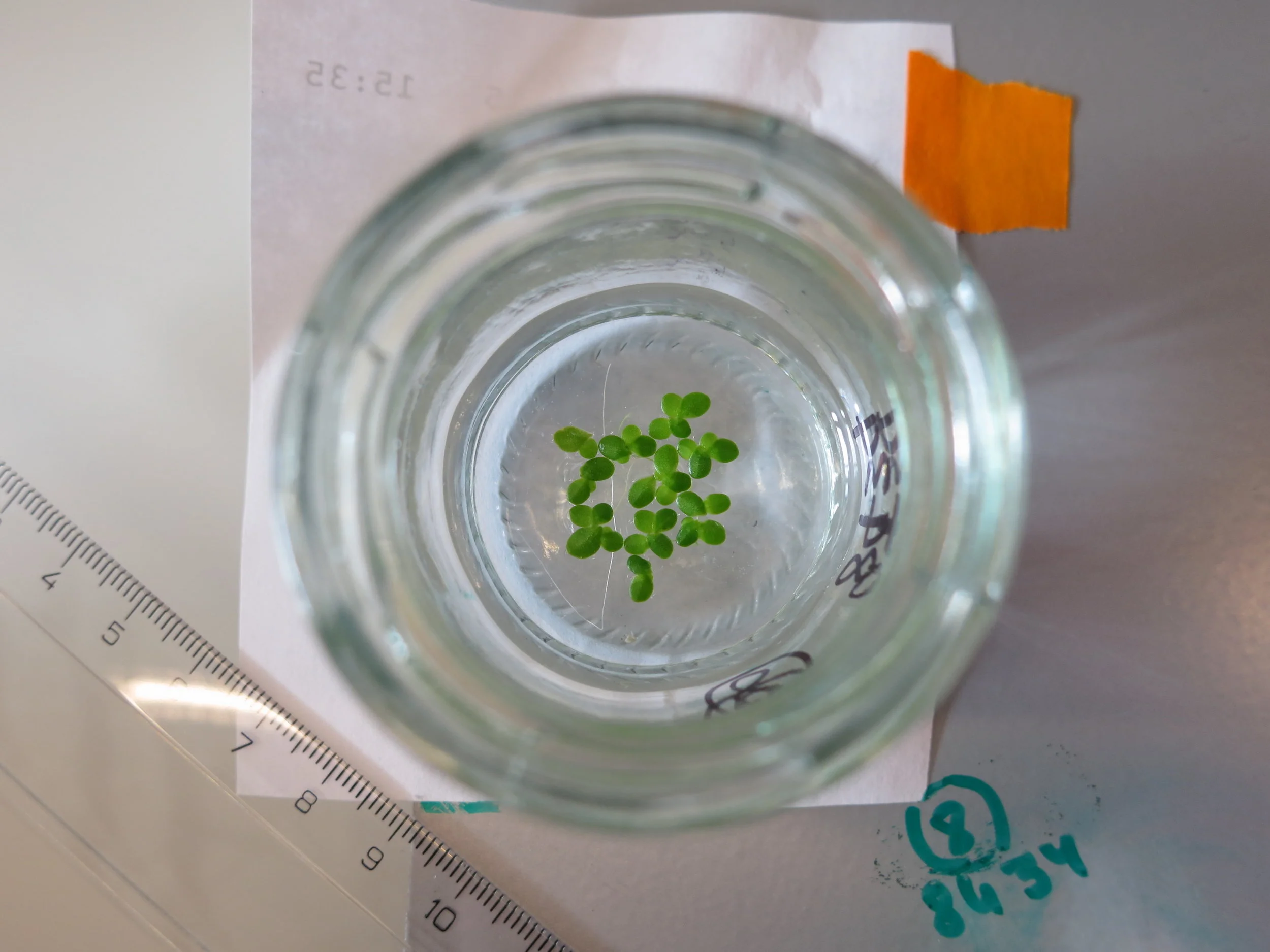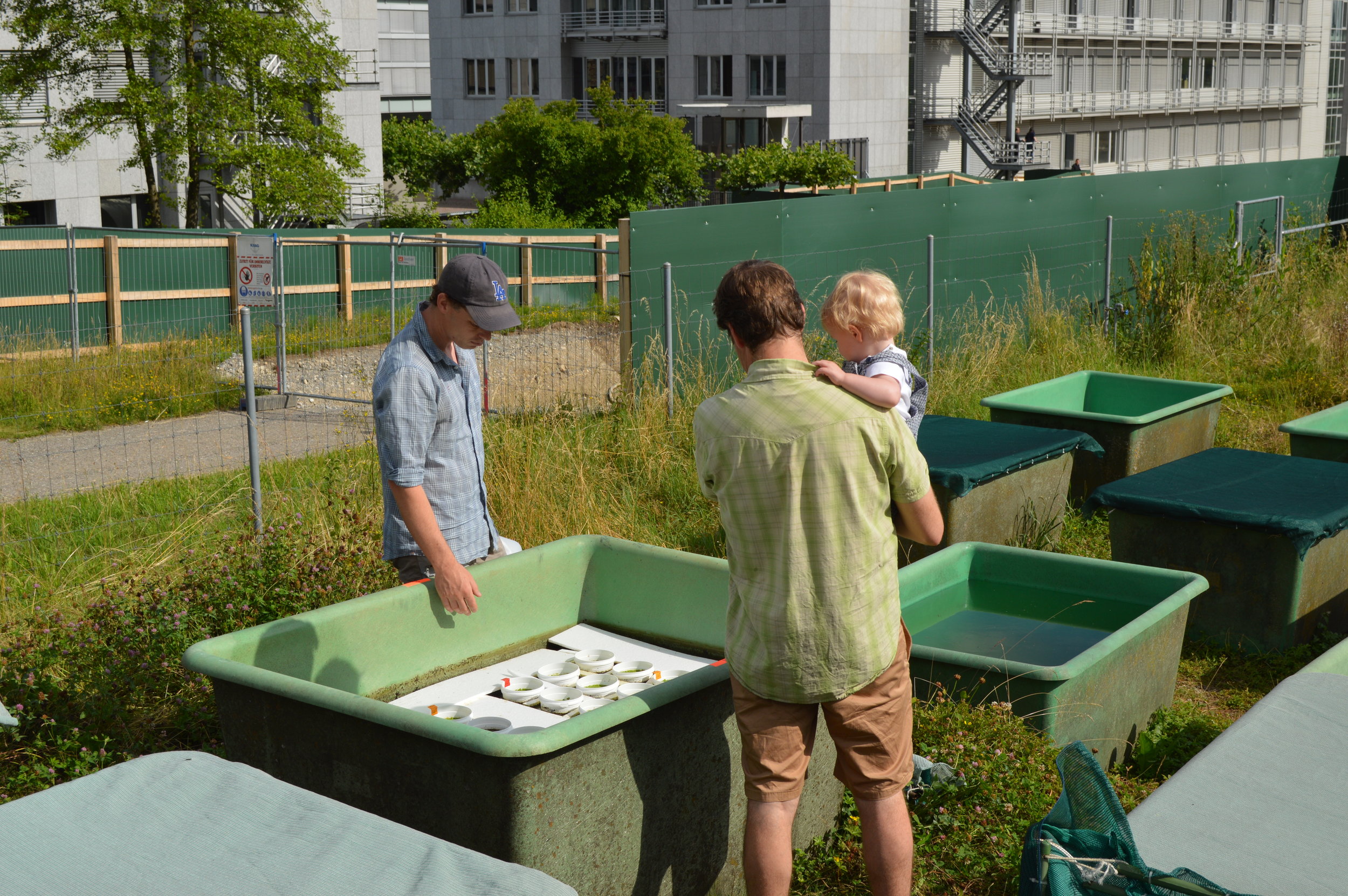Experimental Eco-Evolutionary Dynamics
Eco-Evolutionary Dynamics using Duckweed
To experimentally test hypotheses related to Evolutionary Community Ecology the lab mostly focusses on duckweed. These small floating aquatic plants reproduce incredibly quickly and are being tested as a biofuel and a bio-remediation agent. We explore questions relating to:
Evolutionary Rescue in Communities
We are testing how populations adapt in response to deteriorating environments including metal pollution and nutrient limitation. In addition, we have developed an authentic undergraduate research lab for students to explore these ideas and provide critical data.
Teasing apart Eco-Evolutionary Feedbacks
Eco-evolutionary feedbacks are a special case of eco-evolutionary dynamics with explicit reciprocal causal interactions between a specific evolutionary change and an ecological variable. We are developing methods to isolate and quantify the impact of feedbacks themselves using duckweed.
DW-Microbiome Interactions
Our postdoc Dr. Jiaqi Tan is testing eco-evolutionary interactions between duckweeds and their microbiomes including testing how rapid evolution impacts their interactions.
Research in other in other taxa
Drosophila Seasonal Dynamics
In collaboration with Paul Schmidt at UPenn we are experimentally testing the eco-evolutionary impacts of rapid seasonal adaptation in Drosophila melanogaster in field mesocosms.
Aphids population dynamics
Previous research manipulated rapid evolution by altering the genetic composition of aphid populations in the field leading to strong impacts on concurrent population dynamics.
Relevant Publications
How management of invasive may cause them to evolve higher invisibility (Evolutionary Applications 2024)
Experimental test of an eco-evolutionary feedback cycle (American Naturalist 2013)
Experimental tests of the ecological impacts of rapid evolution in the lab (Evol. Eco. Res. 2011) and in the field (Ecology Letters 2011). Demographic responses driving these dynamics (Journal of Animal Ecology).
(In Review) Tan, J., Kerstetter, J.E., & Turcotte, M.M. Eco-evolutionary interactions in the microbiome determine plant fitness.
